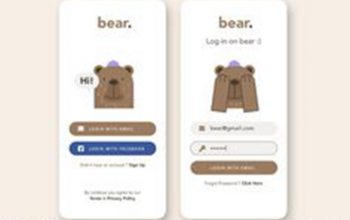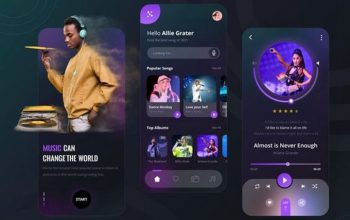From April 25, 2022, Apple will solely settle for apps which can be tailored for iOS 15, iPadOS 15, watchOS 8, and macOS Monterey.
Table of Content
- ASO news digest for March
- free keyword installs
- buy ios app
- app rating service
Builders ought to now create apps utilizing Xcode 13, which incorporates the newest SDK. Apple recommends profiting from new options to enhance app efficiency, make the interface extra intuitive, and refactor the code.
Because of the newest SwiftUI updates, builders will be capable of add new options to apps, akin to improved listing views and search, in addition to help for administration areas.
Reader app publishers will be capable of use third-party fee strategies within the App Retailer
Final yr, Apple introduced that they’d permit reader apps to incorporate a hyperlink to a web site for creating and managing an account. It will let builders obtain fee from customers by way of their website with out paying a fee to the App Retailer. On March 30, the replace went into impact and was added to App Retailer Evaluate 3.1.3(a).
Nonetheless, the brand new characteristic has plenty of limitations:
1. To make use of the characteristic, it’s essential apply for an Exterior Hyperlink Account Entitlement. This permits Apple to extra fastidiously assessment apps wanting so as to add hyperlinks to an exterior website.
2. The characteristic will likely be accessible just for these builders whose major performance is offering a number of of the next digital content material varieties; magazines, newspapers, books, audio, music, or video. For instance, it gained’t work for a social media app that permits folks to stream audiovisual content material.
3. If an app permits exterior accounts, it’s going to now not be capable of supply in-app purchases on iPhone or iPad.
4. A hyperlink to a web site can’t be added to the app’s metadata; it will possibly solely be included within the app itself.
5. The hyperlink should not point out the costs of products on the web site. The CTA must be just like: “Go to instance.com to create or handle your account.”
Learn extra in regards to the necessities for including exterior hyperlinks to reader apps.
New EU legislation could pressure Apple to permit downloading apps from third events
Representatives of the Parliament and the Council agreed on new EU guidelines limiting the market energy of huge on-line platforms. The Digital Markets Act will pressure Apple to permit customers to put in apps from shops apart from the App Retailer.
European Fee spokesperson Johannes Bahrke mentioned the DMA would permit customers to decide on different app sources. Smartphone homeowners can use the default app retailer or select different safe app shops.
Apple may also have to permit customers to put in apps from third-party sources (often known as sideloading) and permit builders to make use of the App Retailer with out Apple fee programs.
The European Parliament has not but handed this legislation, however it’s anticipated to be permitted with out a lot hassle. The DMA could enter into pressure as early as October of 2022. The EU international locations will then select the way to interpret the EU act in nationwide legislation.
Apple’s advantageous within the Netherlands reaches 50 million euros
The Authority for Shoppers and Markets has fined Apple for the tenth time with the entire quantity of fines already exceeding 50 million euros. On December 24, the regulator demanded that Apple add the choice of third-party fee for relationship apps.
The primary proposal from Apple didn’t fulfill the regulator, and now the corporate has corrected it by:
1. Eradicating the requirement for a separate binary file;
2. Offering extra particular standards for evaluating fee service suppliers which may be used for third get together funds;
3. Mandating a modal window explaining to customers that they will make purchases by way of an exterior fee system.
ACM promised to assessment the proposal however warned that additional sanctions might be imposed on Apple in the event that they discovered the proposal unacceptable once more.
The ACM order may additionally lead to extra critical EU necessities that might restrict Apple’s anti-competitive conduct in the direction of app publishers.
Apple faces a multibillion-euro class motion lawsuit within the Netherlands over the App Retailer fee
The Netherlands Client Competitors Claims Basis has filed a lawsuit in opposition to Apple within the quantity of a number of billion euros. The lawsuit claims that the App Retailer fee of 15% or 30% of the app value is larger than it must be. The muse experiences that potential harm to customers may quantity to virtually 5 billion euros (5.5 billion {dollars}).
The muse’s press launch says that Apple is abusing its monopoly place, and a 30% fee on every app sale forces builders to lift costs. All customers from the EU who’ve bought an app within the App Retailer or made a purchase order within the app since September 2009 are inspired to hitch the lawsuit.
Google Play information
Google began engaged on the potential of introducing third-party billing
Google is launching a pilot mission that goals to discover the potential of “billing on the consumer’s alternative”. The mission will permit a small variety of taking part builders to supply customers an extra technique of billing together with the power to pay by way of Google Play.
The corporate will work with builders to discover numerous billing choices on the consumer’s discretion. Spotify grew to become the primary companion of this system. They are going to introduce their billing system within the app together with the Google Play system.
Spotify declined to reveal what fee it could pay to Google as a part of the check. A pilot model of the system is anticipated to be launched later this yr.
Google introduced three updates on Google Play for gadgets with giant screens
Google has introduced three updates that may quickly seem on Google Play for gadgets with giant screens:
1. Modifications in rating
Within the coming months, the system for displaying and rating apps on gadgets with giant screens will likely be up to date. Precedence will likely be given to high-quality apps which can be higher optimized for customers’ gadgets.
2. Alerts for customers who set up low-quality apps
Google will notify customers of gadgets with giant screens if the app they select doesn’t meet fundamental compatibility necessities. This manner, customers will know which apps are usually not working properly on their gadgets.
3. Scores and critiques for particular gadgets
Customers will see the scores and critiques of apps for his or her gadgets. For instance, scores for tablets and foldable gadgets, in addition to for Chrome OS, Put on, or Auto programs. In Google Play Console, builders can examine scores and critiques by machine kind.
Google additionally shared ideas for optimizing apps for big screens.



